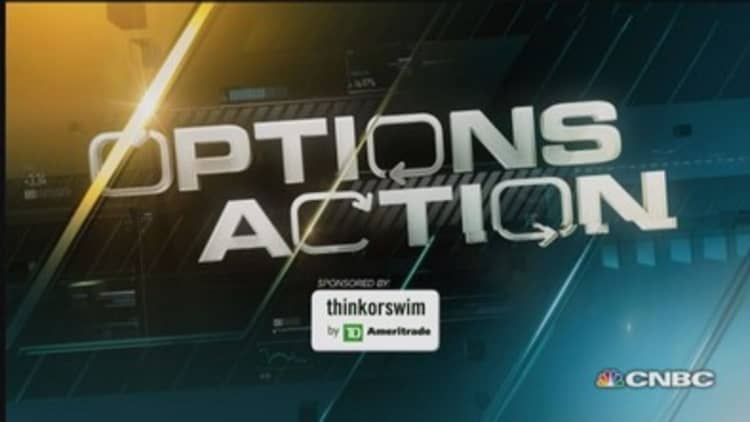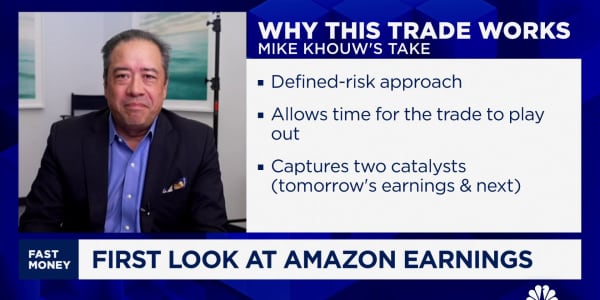
Traders are hitting the brakes on Ford.
Shares of the automaker are down nearly 2 percent this week after it reported a decline in February sales, citing harsh winter weather. Ford sales fell 2 percent last month, making it the worst among its peers (General Motors saw a 4 percent increase and Toyota sales soared 13 percent).
Read More
The move had the options market heating up with bearish bets. Thursday, Ford traded three times its average daily put volume and was the 10th most active single-stock option.
And there was one notable trade where an institutional trader bet more than $400,000 that the stock could lose another 4 percent through May. Specifically, that trader bought 7,000 of the May 16-strike puts for 60 cents each. Since each options contract controls 100 shares, this trade is betting $420,000 that Ford will fall below $15.40 by May expiration.
Ford shares are up 3 percent year to date, handily beating the market over that time, but the stock is lagging its competitors. General Motors is up more than 6 percent and Toyota is up 8 percent.
"The interesting thing about looking at Ford fundamentally is that the company reported disappointing February sales, but the suggestion is that is due to the weather," said Michael Khouw, a CNBC contributor. "I think the bigger concern here for Ford is that auto sales could be hurt by the potential for rising rates later this year."
Read More
Indeed, lower interest rates have helped boost auto sales over the past several years, but as Fed Chair Janet Yellen prepares to lay the groundwork for an interest rate hike, automakers are likely to see a decrease in profits, says Khouw.
"We've seen a substantial amount of longer-dated put buying in Ford," said Khouw. "This does not mean that the put buyers expect rates to rise in the next quarter or two, it means the put buyers expect auto stocks to begin anticipating that impact."






